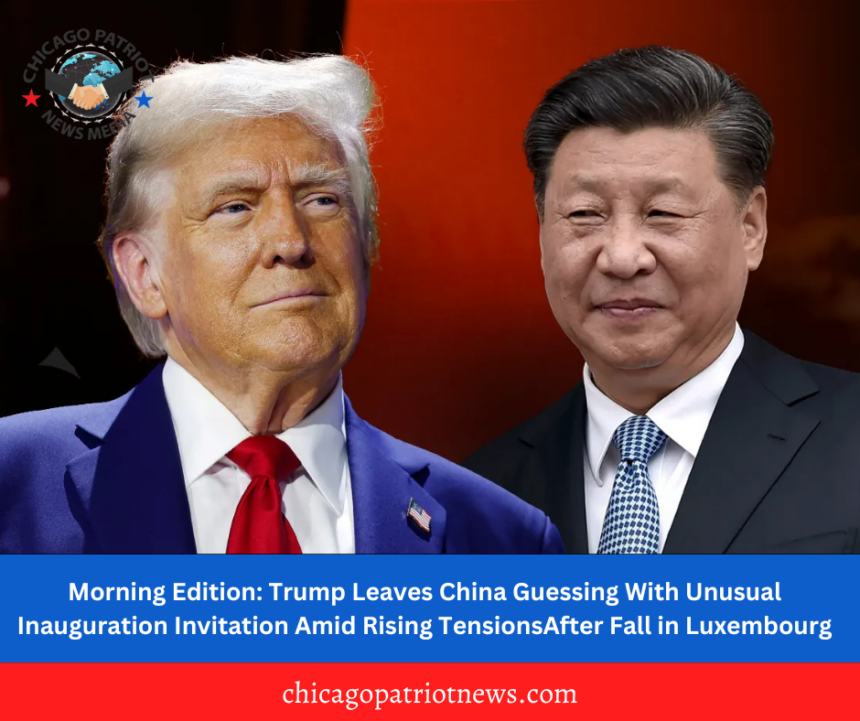Chicago December 15, 2024
President-elect Donald Trump surprised many when he invited Chinese President Xi Jinping to his inauguration, a move that raised questions about U.S.-China relations. This gesture is especially unusual because no Chinese head of state has ever attended a U.S. presidential inauguration. While it’s unlikely that Xi will accept the invitation, the offer comes at a time when tensions between the two nations are high.
The invitation coincides with the discovery of a major cyberattack on U.S. telecommunications companies, blamed on Chinese hackers. Known as “Salt Typhoon,” the hack targeted government-related individuals, mostly in the Washington, D.C., area, and intercepted their private data, including phone calls and texts.
Many experts believe that Xi views any sign of friendliness from the U.S. as a weakness, and China is known to take advantage of such situations. During his campaign, Trump hinted at a trade war with China, proposing heavy tariffs on Chinese imports. These tariffs, which could reach up to 60%, would affect about $400 billion in goods.
As military tensions rise in the Indo-Pacific region, with China showing its strength near U.S. allies like the Philippines and Japan, some worry that the trade war could worsen. China is also reportedly considering lowering its currency value in response to potential tariffs from the U.S.
Despite these challenges, experts like Goldstein believe that trade with China can still be beneficial, but adjustments are needed, particularly regarding China’s currency policies.





